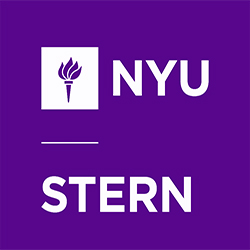Around the start of first semester, the New York Times published a controversial article on gender equity at Harvard Business School that quickly dominated the discourse on what it means to be a woman in business school. The truth is, women are still severely underrepresented, both in MBA classes and in the higher ranks of management. At Stern, women comprise about 38.4% of the student body — and we beat out many of our competitors.
In true Stern fashion, a number of student leaders leapt into action following the article’s publication. A week later, the Stern Student Government and Stern Women in Business organized a lunchtime discussion on gender equity at Stern, which involved students, professors, administrators, and the author of the New York Times piece. The general consensus is that most women at Stern feel empowered to make their voices heard in classes, on teams, and in the ecosystem of clubs and recruiting and consulting projects that make up the student experience. In most of my classes, women are the first to raise their hands for questions, and they hold many of the top leadership positions in the school.
However, the conversation revealed a number of subtler behaviors, perceptions, and stereotypes that govern how men and women interact with each other, both at Stern and in the broader business community. Soon after, a committee of student volunteers came together to address these issues in more depth. One result has been the formation of “Lean In” circles: groups of students, male and female, who come together on a regular basis to discuss gender dynamics, particularly as they relate to Sheryl Sandberg’s recent book and movement. The circles have become a safe space to explore issues related to gender, perceptions, and working environments, and conversations often delve into separate but related topics, like structuring effective teams and navigating aggressive work environments. By establishing a set of norms that includes honesty, candor, and telling it like it is, we are breaking ground on subjects that are otherwise considered too taboo to say out loud.
But beyond having an arena to converse and vent and analyze, these circles have also turned into grounds for brainstorming solutions and developing action plans. Stern’s administration has signaled its support for the movement and is working with student leaders to incorporate the gender discussion in the classroom and into Stern programs like Launch (our signature two-week orientation). Our dean, Peter Henry, recently met with other business school deans at the White House for a discussion on how business education has a role in creating friendlier workplaces for working families, particularly women. Across Stern, women and men, administrators and students, are making the commitment to “lean in” so that we can make true gender equity — both at Stern and in the workplace — a reality.
